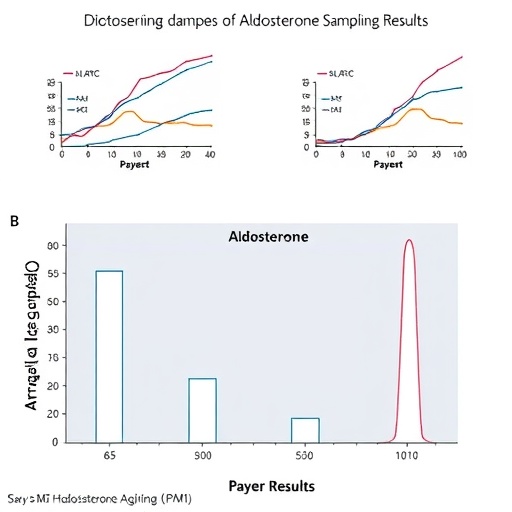
Recent research has highlighted the critical issue of diagnosing neurocognitive disorders in older adults following trauma, particularly within acute care environments. This systematic review, spearheaded by Merriman et al., examines the diagnostic accuracy of various screening tools tailored for this demographic. As the population ages, the prevalence of both traumatic injuries and subsequent neurocognitive impairments has become a pressing healthcare concern. Understanding how effectively these screening tools can identify such disorders is essential for improving patient outcomes during a vulnerable period.
One of the primary foci of the review is the sensitivity and specificity of these screening instruments. Sensitivity refers to a tool’s ability to correctly identify those with the disorder, while specificity measures its capacity to correctly rule out those without the condition. In the context of acute care settings, where time is often of the essence, having high sensitivity is crucial. A tool that fails to accurately identify neurocognitive issues could delay appropriate interventions, leading to worse health outcomes for elderly patients.
The review encapsulates findings from numerous studies, each contributing to an ever-evolving understanding of neurocognitive disorders. In essence, the task at hand is not only to identify cognitive impairments but also to do so in a manner that allows for timely and effective treatment plans. With a variety of screening methods available—ranging from brief cognitive assessments to more comprehensive neuropsychological evaluations—determining which tools yield the most accurate results is paramount.
Additionally, the paper scrutinizes the role of underlying factors, such as pre-existing health conditions and the varied presentations of cognitive decline, which can complicate the screening process. Older adults may present with a multitude of health issues that can mask or mimic neurocognitive disorders. This adds layers of complexity to the diagnostic process and highlights the necessity for healthcare providers to be vigilant and informed, ensuring that they utilize the most effective tools available.
The research also addresses the importance of training and familiarity with these diagnostic tools among healthcare professionals. Even the most accurate screening tool can lead to misdiagnosis if the personnel administering it are not proficient in its application. The review underscores a need for comprehensive training programs that immerse staff in the nuances of these assessments. Such initiatives would aim to enhance the reliability of the diagnostic process, fostering an environment where patients receive timely and accurate evaluations.
The implications of accurately diagnosing neurocognitive disorders extend beyond individual patient care; they resonate throughout healthcare systems. Delays in diagnosis and treatment can lead to increased hospital stays, higher healthcare costs, and an overall deterioration in the quality of life for older adults. Therefore, investing in effective screening tools and training for healthcare providers is not merely an academic exercise but a crucial strategy for improving patient care and reducing system-wide burdens.
Moreover, understanding the cultural and social contexts in which these screenings take place is vital for their success. Different populations may have varying perceptions of cognitive decline, which can influence their willingness to engage with screening processes. This brings to light the necessity for culturally competent care that not only focuses on the tools employed but also acknowledges and respects the diverse backgrounds of patients.
The systematic review by Merriman et al. encapsulates an eagerness to refine diagnostic accuracy in an area that profoundly impacts older adults and their families. As the population of older individuals continues to grow, the demand for effective screening tools that can streamline the diagnosis of neurocognitive disorders will become increasingly critical. Advances in technology and research methodologies promise new insights and improved instruments for clinicians, potentially transforming the landscape of geriatric care.
Interestingly, as neurological research evolves, so does the approach to assessing cognitive impairment post-trauma. The review points to a growing body of evidence that highlights the interconnectedness of physical injuries and cognitive health. By addressing these linkages, healthcare providers may be better equipped to provide holistic care that recognizes the multifaceted nature of health in older adults.
In conclusion, the comprehensive assessment provided by Merriman and colleagues paves the way for future exploration into the diagnostic processes for neurocognitive disorders in older adults. It serves as a clarion call to the healthcare community, urging a collective response to this growing issue. The aim is not simply to improve screening outcomes but to ensure that every older adult receives the quality care they deserve, optimizing their recovery and preserving their cognitive health.
As research continues to unfold, it promises to bring forth innovative strategies that will enhance diagnostic accuracy and patient care. The ongoing dialogue within the healthcare community about cognitive disorders is crucial, and the findings from this systematic review provides a vital stepping stone towards more effective interventions for the aging population facing trauma and neurocognitive challenges.
Subject of Research: Neurocognitive disorders in older adults post-trauma
Article Title: Diagnostic test accuracy of screening tools for the detection of neurocognitive disorders in older adults post-trauma in acute care settings: a systematic review.
Article References: Merriman, N.A., Walsh, M.E., Ferris, H. et al. Diagnostic test accuracy of screening tools for the detection of neurocognitive disorders in older adults post-trauma in acute care settings: a systematic review. Eur Geriatr Med (2025). https://doi.org/10.1007/s41999-025-01287-9
Image Credits: AI Generated
DOI: https://doi.org/10.1007/s41999-025-01287-9
Keywords: Neurocognitive disorders, screening tools, older adults, trauma, acute care settings, diagnostic accuracy.
Tags: acute care environments for elderlydiagnostic accuracy in acute careelderly patients and traumahealthcare concerns in aging populationidentifying cognitive impairments in traumaimproving patient outcomes in healthcareneurocognitive disorders in older adultsprevalence of neurocognitive impairmentsscreening tools for trauma patientssensitivity and specificity of screening instrumentssystematic review of diagnostic toolstimely interventions for cognitive disorders




